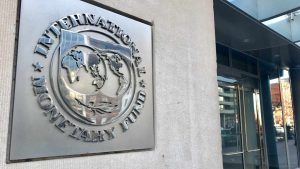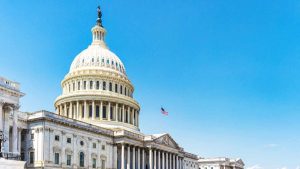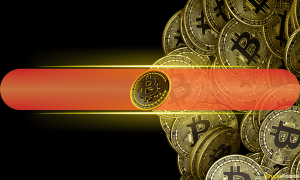SEC charges against Binance and Coinbase are terrible for DeFi

[ad_1]

The allegations against Binance and Coinbase by the U.S. Securities and Exchange Commission have substantial ramifications for the decentralized finance (DeFi) ecosystem, and they are far from positive. DeFi has developed as a promising area within the crypto industry, aiming to disrupt established financial systems and deliver financial services in a decentralized manner.
However, the latest charges against these centralized exchanges raise doubts about the future of DeFi. By targeting Binance and Coinbase for suspected violations of securities laws and operating unregistered exchanges, the regulator seems to be imposing its authority on an industry that thrives on independence and autonomy.
Here’s why such charges are terrible for DeFi.
Solana, Matic, Algorand and other tokens targeted
DeFi’s strength comes from its decentralized protocols, smart contracts and decentralized applications that empower users and eliminate the need for intermediaries. Nonetheless, such a legal conflict against centralized exchanges challenges the essential concepts of DeFi. It appears like regulators are seeking to suppress innovation and reestablish control over a fast-expanding business.
Moreover, the SEC’s accusations against Binance and Coinbase might have a chilling effect on DeFi projects, leading to uncertainty among developers and entrepreneurs about pursuing new and breakthrough concepts. This could hinder the potential expansion and evolution of DeFi, limiting its ability to disrupt and improve established financial institutions.
Related: Kevin O’Leary won’t rule out criminal charges in Binance ordeal
In the Binance lawsuit, the SEC argues that tokens such as Solana’s SOL (SOL), Cardano’s ADA (ADA), Polygon’s MATIC (MATIC), Filecoin (FIL), Cosmos’ ATOM (ATOM), The Sandbox’s SAND (SAND), Decentraland’s MANA (MANA), Algorand’s ALGO (ALGO), Axie Infinity Shards (AXS), and COTI (COTI) are securities. Another notable cryptocurrency deemed a security by the SEC is Ripple’s XRP (XRP).
Such charges have significant ramifications for the DeFi ecosystem, considering the high market capitalization and prominent position these cryptocurrencies have. The SEC’s allegations imply that they would need to conform to the legislation and registration procedures relevant to regular securities. This would introduce a huge barrier for the DeFi projects utilizing these coins and might potentially hinder their growth and innovation.
One immediate concern is the potential impact on liquidity and trading activity linked to these coins. If their categorization as securities limits market accessibility or results in a lessened price impact, it might drastically curtail the options accessible to DeFi customers. Moreover, this could impair the overall effectiveness and efficiency of decentralized protocols.
Binance’s BNB ecosystem would face a $200 million liquidation if its price were to fall below $220, according to DeFiLlama data.
Single largest liquidation in DeFi.
— whalechart (@WhaleChart) June 9, 2023
Another concern arises from the compliance duties created by recognizing these coins as securities. DeFi projects would face higher expenses and administrative difficulties, deterring smaller initiatives or firms from entering the DeFi industry. This could result in a reduction in innovation and a restricted range of services offered to users.
Furthermore, the ramifications of these allegations extend beyond the specific coins cited in the lawsuit. The uncertainty surrounding the regulatory status of various tokens within the DeFi ecosystem has the potential to exert a ripple effect on the sector as a whole. Market participants may display reluctance to participate with tokens that could potentially be classified as securities, weakening investor confidence and limiting overall market growth.
Unlevel playing field
The charges against Binance and Coinbase by the SEC can be perceived as giving traditional banking institutions an unfair advantage over DeFi. The financial crisis of 2008 uncovered several examples of fraudulent operations, risky behavior and bad management within the traditional banking sector. Despite their role in contributing to the crisis, many banks got government bailouts to prevent their collapse. This liberal approach allowed them to continue functioning without suffering significant consequences for their actions.
In contrast, the crypto exchanges, such as Binance and Coinbase, are now being sued for alleged violations of securities laws and operating unregistered exchanges. This gap in treatment raises concerns about justice and equal opportunity. It seems that traditional financial institutions are offered second chances and support, but crypto exchanges are instantly subjected to legal action and regulatory crackdowns.
Related: Binance was wrong to boot Monero, ZCash and other privacy coins
Such a difference not only contradicts the concepts of fairness and accountability but also limits the growth and development of the growing crypto economy. Moreover, this biased approach risks producing an unlevel playing field. Traditional financial organizations are subject to well-established rules and have the capacity to negotiate difficult compliance obligations, while crypto exchanges may struggle to satisfy these stringent criteria.
This discrepancy in resources and regulatory load puts crypto exchanges at a disadvantage, hampering their capacity to compete and innovate. This mismatch in regulatory treatment may hamper the fair playing field for DeFi ventures, limiting their ability to compete and develop against established financial firms.
Brain drain and talent migration
The availability of resources and financing frequently drives talent mobility. Countries or locations that have a robust investor community, well-established fundraising networks, and access to finance tend to attract top talent. These tools provide the necessary support for entrepreneurs and innovators to bring their ideas to fruition. Lack of financing and resources in certain places can encourage talent to relocate to areas where they have better access to these critical aspects.
Heightened regulatory measures against DeFi exchanges can lead to a skill drain within the ecosystem. Skilled professionals and entrepreneurs may choose to quit the DeFi industry or relocate to jurisdictions with more favorable regulatory conditions. This brain drain can deprive the DeFi business of valuable experience and limit the development of creative solutions.
For example, China’s crackdown on cryptocurrency and ICO-related activities in 2017 led to the movement of talent and crypto-related enterprises to more crypto-friendly jurisdictions like Singapore, Switzerland, and Malta. This move led to these countries attracting considerable blockchain and DeFi innovation.
Disincentive for institutional adoption
Regulatory measures against Binance and Coinbase can create a deterrent for institutional investors to join the DeFi ecosystem. Institutions typically seek regulatory clarity and compliance while selecting investments. Uncertainty and regulatory scrutiny surrounding DeFi exchanges may dissuade institutional investors from entering the market, reducing the inflow of institutional money that can contribute to the growth and maturation of DeFi.
For example, the SEC’s reluctance to approve a Bitcoin exchange-traded fund in the United States due to worries over market manipulation and a lack of regulatory control has caused many institutional investors to be wary about entering the cryptosphere. Furthermore, the SEC’s rejection was correlated with major declines in Bitcoin’s price, demonstrating that negative regulatory developments can impact price volatility and thereby damage investor confidence.
Ultimately, the outcome of these allegations and regulatory measures will influence the destiny of DeFi. It is vital for regulators to assess the potential of disruptive technologies and ensure that their actions do not hinder their growth or deter innovation. Striking the right balance between regulation and decentralization is important to unlock the full potential of DeFi and usher in a new era of financial inclusiveness and empowerment.
Guneet Kaur joined Cointelegraph as an editor in 2021. She holds a master of science in financial technology from the University of Stirling and an MBA from India’s Guru Nanak Dev University.
This article is for general information purposes and is not intended to be and should not be taken as legal or investment advice. The views, thoughts and opinions expressed here are the author’s alone and do not necessarily reflect or represent the views and opinions of Cointelegraph.
[ad_2]
Source link










